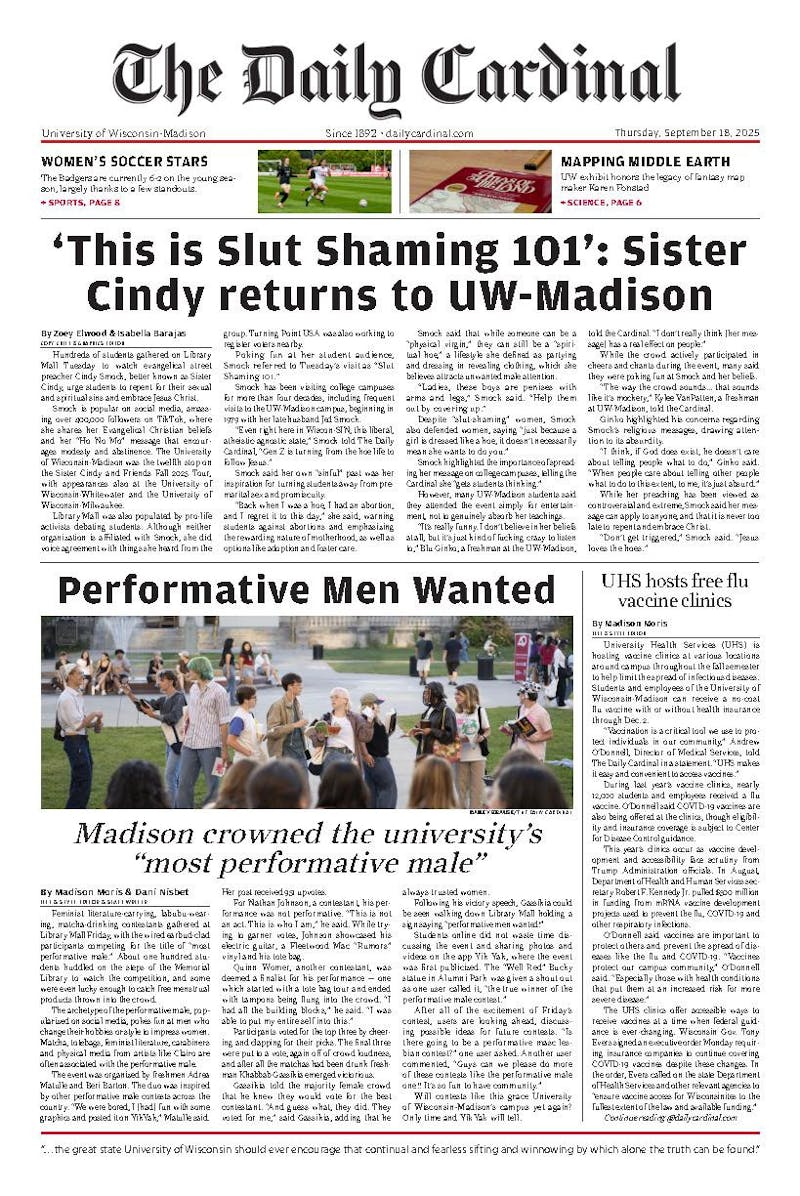When Jacqueline DeWalt was a UW-Madison graduate student in 2000, she enrolled her son in the PEOPLE (Pre-college Enrichment Opportunity Program for Learning Excellence) Program, created in 1999.
After enrolling her son in the program, DeWalt soon began working for PEOPLE, eventually becoming its executive director.
“People say there’s an achievement gap as though it’s the students’ fault,” DeWalt said. “I say there’s an opportunity gap, because students aren’t getting access to opportunities that might excite them.”
PEOPLE has provided educational opportunities for the past 17 years, preparing low-income and minority students in Wisconsin for college. The program has expanded from 66 students at its inception to more than 1,300 students today.
According to DeWalt, the program’s extensiveness separates it from other pre-college programs and its structure has contributed to its considerable success.
PEOPLE runs from elementary school through high school, offering after-school tutoring, summer classes on the UW-Madison campus and internship opportunities. The program supports students across Wisconsin, including those in Madison, Milwaukee and all 11 federally recognized native tribes in the state.
Students who complete the PEOPLE program and meet UW-Madison admission requirements are eligible for a full-tuition scholarship and continuous academic support throughout their undergraduate experience, including access to tutors and advisors.
According to the program’s statistics, 100 percent of PEOPLE students graduate from high school, and 94 percent attend higher education institutions; nearly half enroll at UW-Madison.
The infrastructure of PEOPLE would not be as prosperous without a dedicated staff, according to Jerome Flowers, student services specialist at La Follette High School in Madison.
“The real power of our program is in the bonds formed between students and their peers, and between staff and students,” Flowers said. “It is the care, patience and compassion which every staff member of our program puts into their work that makes our program successful.”
The program’s success aims to compensate for social disparities in Madison public schools.
In 2012, the graduation rate for the Madison Metropolitan School District was 86.7 percent for white students, but only 63.2 among Hispanics and 53.1 among blacks. For low-income students, the graduation rate was 55.4 percent.
“A person will never aspire to be something they don’t even know exists,” DeWalt said. “So it is critical that we reach underserved students in these underserved communities.”
According to the UW-Madison Academic Planning and Institutional Research, 652 targeted minorities (Hispanic/Latino, African American, American Indian or Southeast Asian students) were enrolled at UW-Madison in 2014.
50 of those students, roughly one in 13, were PEOPLE students.
Brandon Alvarez-Carrera, a former PEOPLE student who now works for the program, believes PEOPLE is what pushed him academically.
“[They] knew dreamers like me, and many other students in the program, could do more than be a statistic,” Alvarez-Carrera said.
However, growing success has made access to PEOPLE more competitive; the demand far exceeds capacity, with only one in three applicants accepted into the program.
Still, PEOPLE works to improve the lives of as many students as it can.
Although DeWalt honors the Wisconsin Idea, she believes the notion could apply to even more types of people, from all backgrounds.
“[UW-Madison President Charles] Van Hise said he would not rest until the benevolence of this university reaches every home in Wisconsin. And that’s what PEOPLE does,” DeWalt said. “Reaching some of those homes that have not been connected to the university.”






